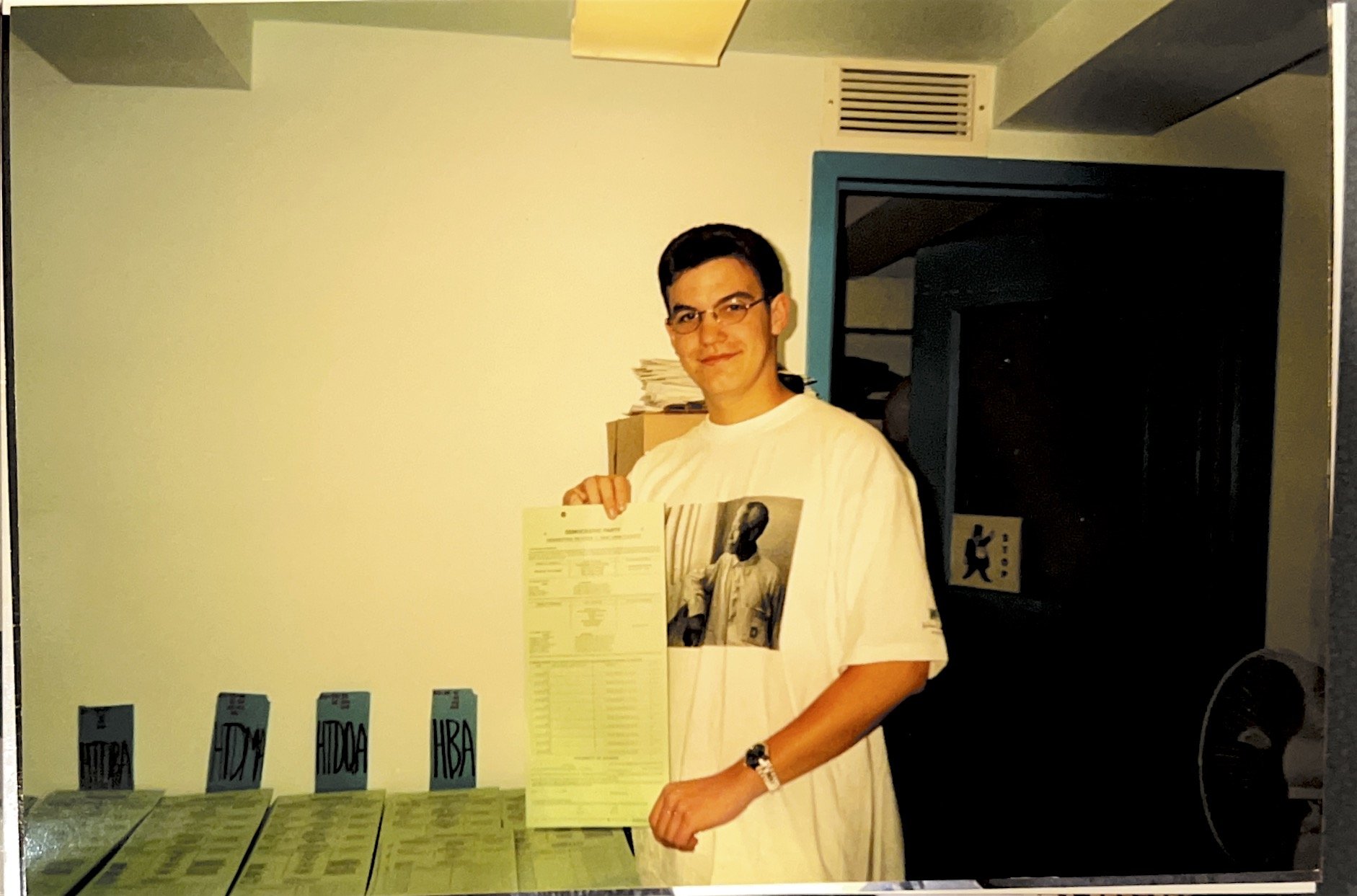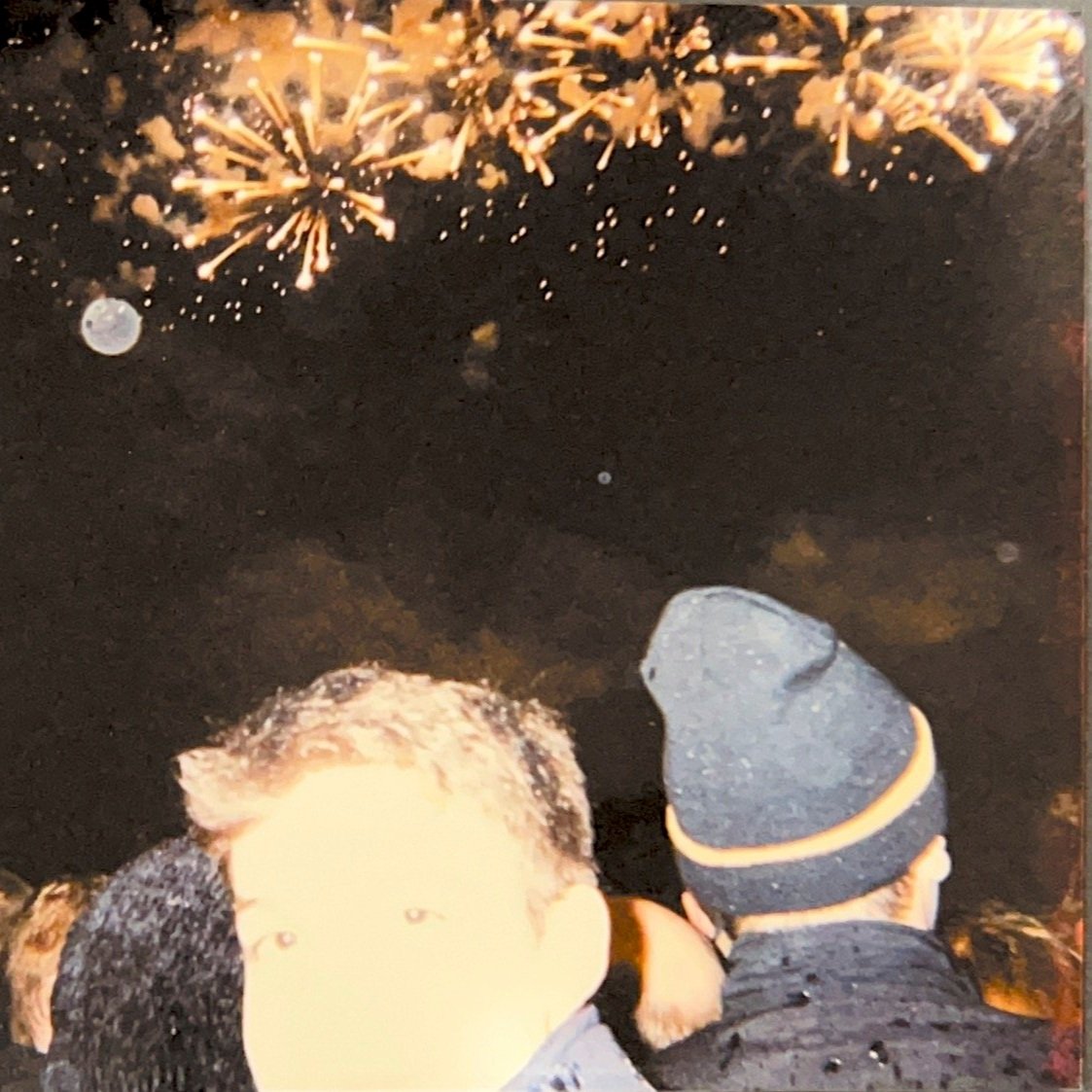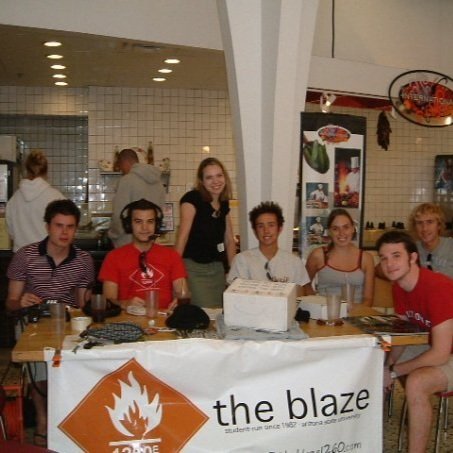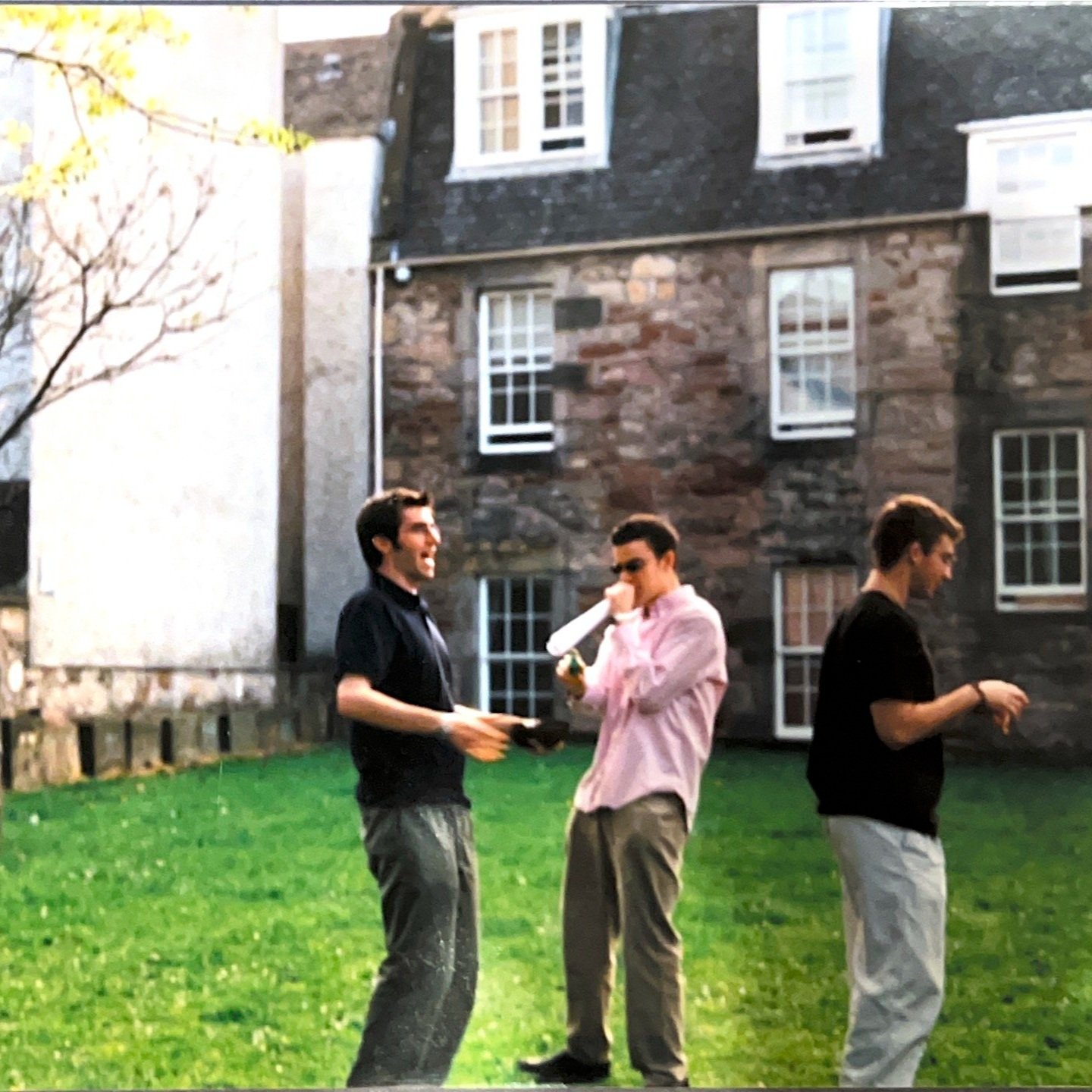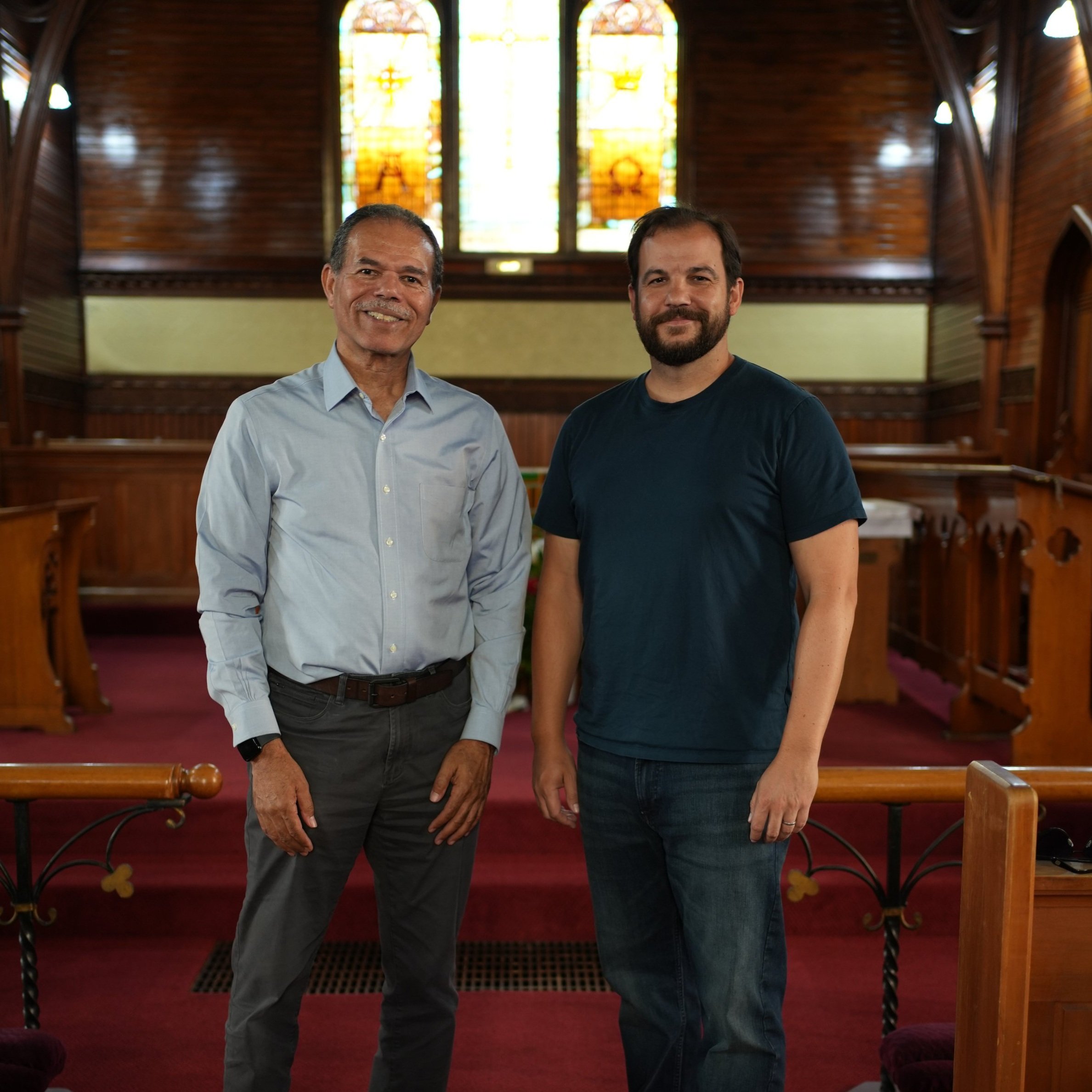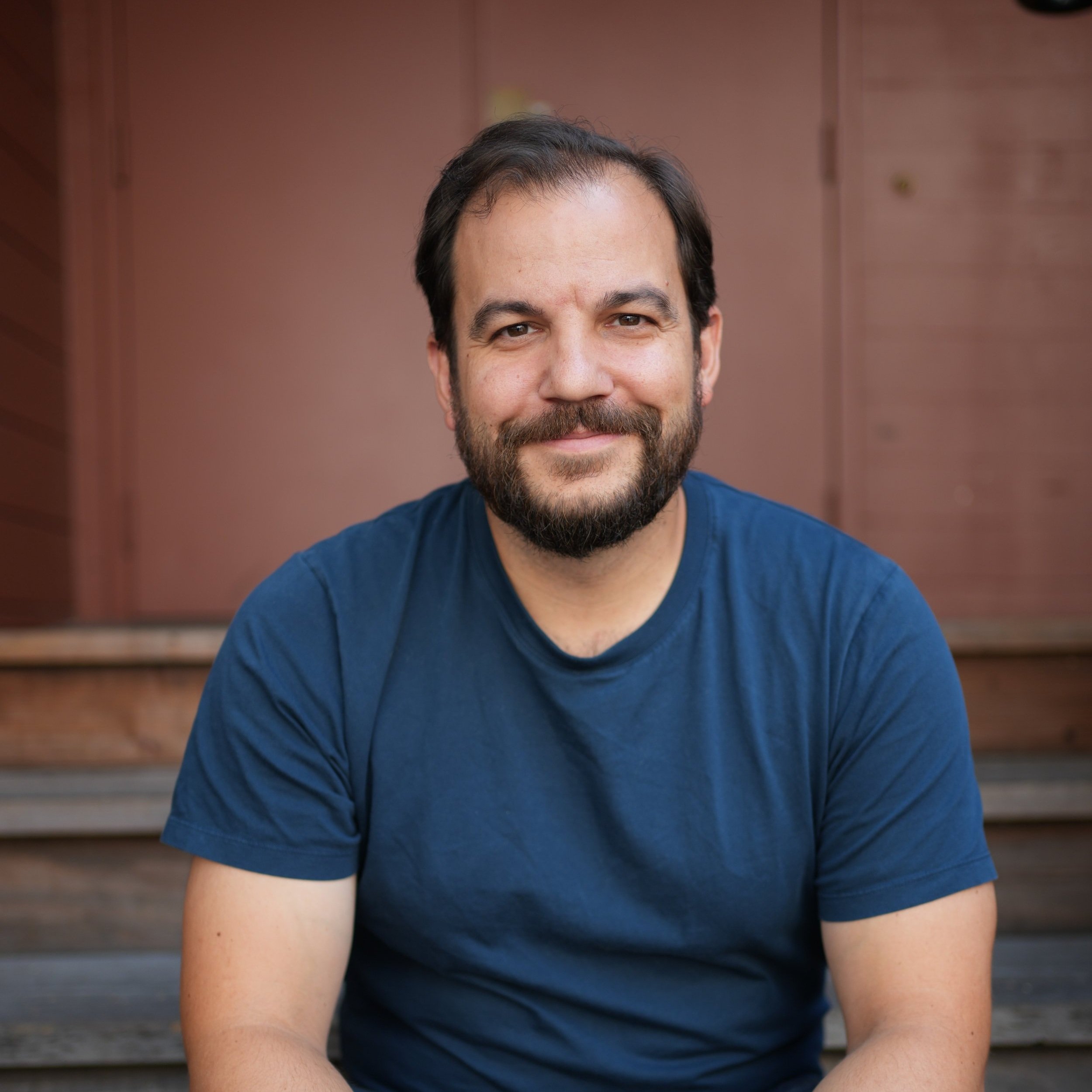Ian Storrar
“I live in Oakland with my family, and I grew up in Scotland, originally. I grew up in the church, being the son of a minister, surrounded by people who babysat me and all of our social activities and our community life was in the church.
That continued to be the case for me even after my dad was no longer a parish minister. We moved from town to town and I grew up in and around churches my whole life. But I also had a deep sense of community and connection to civic life, to the arts, to different forms of community and sometimes those overlap, those circles. Other times I found the place I belonged, being in politics or in student theatre, so I kind of had a life where I grew up in many different places.”
Ian and his wife
“I have a wonderful wife and a wonderful daughter and we have a great life together. That sort of foundation is really helpful and it grounds me as well. I have tremendous support from [my wife] Sarah, in terms of taking this leap, which was to quit my job and work on this, but she believes in what we're doing. She believes in me and she wants me to be successful. But one of the key things that I focus on is looking after myself. So trying to get enough sleep, to exercise, trying to eat better, then also spending time with family.”
“It's great to be an entrepreneur in the Bay [Area] because obviously this is where startups come from. But, it brings a lot of problems. We kind of live in a bubble here, I think. And while we have extreme wealth and people making incredible things come to life through their startups, we also have a responsibility to think about how we make the world better for the world that we're kind of leaving behind.
How do we help? People in local communities connect. That's what's really resonating for me. I've been in the tech industry and in and around startups for a long time. But for me it was really important to do something that connected to the fundamentals of who I am and what I believe in, what I want the world to look like.”
Ian with his sketch comedy troupe, Etchy Sketchy
“Being in nonprofits and being involved in the arts and community organizing, to me, was about building something with my hands and being as close to them as possible. I want to solve problems that affect people's daily lives that will have an impact. Yes, if we're successful, we can achieve the vision and get to the sort of the pot of gold at the end of the rainbow. That's the journey, but how do we actually meaningfully change the world every day? Getting up and saying how can we build community today with this host that we're working with or these hosts in Oakland or in the East Bay and connect them to the organizations that are around them in the community and actually make something happen and make people's lives better today and then every day after, as opposed to just how do we make this as lucrative for me or my investors as possible.”
Church spaces are just not being used right now anymore and just like, you know, kind of the moving away from coming to service every Sunday. Can you talk more about that and like what, how the shift in sort of the community's focus on that?
“I'm probably not the expert on that, but what's happened is people in general have fallen away from institutional belonging, institutional membership. It's been happening for a long time. At the same time the pressure on families and young people and parents and others has increased and so they've been pulled in lots of different directions. Those things have contributed to people I think coming away and then there's obviously a lot of cultural tensions and changes and how people identify. I think that's just the way the world is, but the world, the society that we live in is different from the one that we lived in when I was growing up. Just like it was different from the one that my great grandparents or great, great grandparents lived in. We're just going through a change and we're just going to figure out what the future looks like.”
Ian in a case foundation
Watch Ian’s full interview here:
“At least in the U. S., we've all come to this new world and we've built a lot of problems along the way, but we've also kind of created a world that made sense to us for a period. Now, we're just gonna have to figure out a new model. I don't worry about that so much as long as we're not afraid to reinvent what it means.
While we still have massive immigrant communities, the majority, the middle of America, doesn't associate or have affinity in those communities anymore. And yet those buildings are empty. And so we have to reinvent the model. It's not about owning that and insisting everyone fits your mold. It's about being open and inclusive in a way that you can build community in a more flexible, borderless way.”
WeXL is a 501(c)3 nonprofit fostering creative talent through mentorship and original content.
Please support our programs with a tax-deductible gift today. Together, We eXceL.

